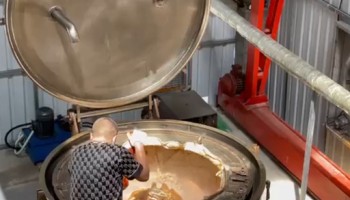Using thermal cameras, Iraqi border guards intercepted a shipment of 400,000 Captagon pills being smuggled across the Euphrates River from Syria, officials announced Monday.
The pills were hidden in plastic containers, according to a statement from Iraq’s Border Guard Command. The operation did not result in any announced arrests, but officials confirmed that “the necessary legal measures were taken,” and the narcotics were handed over to relevant authorities for investigation.
The bust marks the latest in a series of large-scale Captagon seizures along Iraq’s western border. Less than a week earlier, Iraqi forces intercepted 30,000 tablets in the same area. In a separate operation just weeks ago, authorities seized a record 1.1 tonnes of Captagon en route from Syria via Turkey.
Iraq has increasingly become a key hub for drug trafficking, seizing over 24 million Captagon pills in 2023—valued at up to $144 million—according to the United Nations Office on Drugs and Crime (UNODC). Nearly 82% of Captagon intercepted across the Middle East last year originated in Syria, with another 17% from Lebanon, the agency reported.
The amphetamine-like stimulant has flourished under the regime of Bashar al-Assad and became Syria’s largest export during the country’s prolonged civil war. Despite increased enforcement after Assad’s fall, production and smuggling from Syria persist.
Iraq’s strategic location has placed it at the center of a sprawling drug trafficking network connecting Southwest Asia, Africa, and Europe, according to UNODC. In addition to Captagon flowing from Syria, Iraqi authorities face challenges stemming from smuggling operations tied to Iran, where raw materials are believed to originate before being processed in local or regional labs and trafficked to Gulf states.
Anti-drug activist Mohammed al-Yasiri told U.S.-based Alhurra that Iraq’s eastern border is increasingly becoming a source of concern, as authorities attempt to stem the tide of narcotics overwhelming the region.






